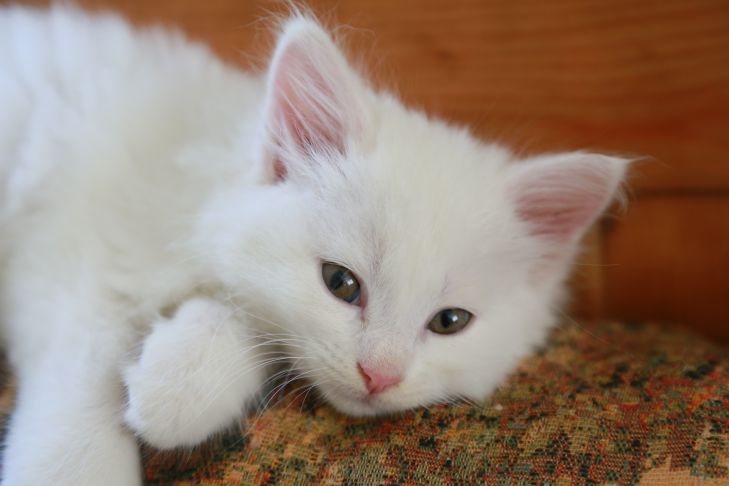Cats' behavior often raises questions and surprises us.
One of these behavioral manifestations is meowing in the litter box.
This could be due to a number of reasons, from a simple expression of satisfaction to possible health issues.

Dirty tray
Cats are generally very clean animals. They need a clean litter box to feel comfortable and relaxed so they can do their business.
Clean the litter box thoroughly once or twice a day, and replace the litter completely about once a week.
It's inconvenient
Cats, like most people, need a place to do their business comfortably. It is generally recommended that the litter box be at least one and a half times longer than the cat.
This will allow her to move around, do her business, and then bury it all. If the litter box is too small, this may be the cause of the meowing.
If you recently changed your litter box, your cat may not like the new shape or design. It may take time for your cat to get used to using a closed litter box, for example, so it may meow.
Incorrect filler
If the litter has recently been changed, the cat may express its disapproval by essentially “asking” for the old one to be returned. This may be especially true if the litter has become harder and is not as convenient for the cat to bury.
Transition to the new litter gradually, mixing a little of the new with the old, and gradually increasing the ratio until you are using only the new type of litter.
Waiting for a reward
If you have recently litter trained your cat and have had to use positive reinforcement as a reward, your cat may be meowing because she is expecting a treat or reward for successfully using the litter box.
You should gradually wean your cat off treats. Start by giving a treat every other time she uses the litter box. After a few days, you can offer treats every third time, and so on until your cat no longer expects a reward.
Likes to meow
Although most cats go to the toilet quietly, some like to announce their presence to everyone.
Make sure there are no other reasons for the meowing before ignoring your cat.
Inflammation
In addition to behavioral reasons why a cat meows while using the litter box, there are other health-related reasons.
If your cat is meowing in the litter box, it could be a sign of a bladder or urinary tract infection. This can be caused by an infection, crystals in the urine, or even stress, and signs include meowing, blood in the urine, or passing small amounts of urine.
Crystals in urine
Urinary crystals, such as struvite crystals, are naturally found in cat urine, but they can become a problem if they form stones. They can cause physical pain inside the urinary tract and can also block it.
Look for signs of pain, as well as changes in the litter box. If your cat is having trouble going to the toilet, she may spend more time in the litter box because she feels the need to urinate more often.
Clogging
Urethral blockage is common in cats with urinary tract disease and most often affects male cats. It is very painful, so many cats meow when trying to urinate, but no urine is produced.
If left untreated, this condition can lead to kidney damage and life-threatening electrolyte imbalances, so your cat needs to be taken to the vet immediately.
Constipation
Injuries, certain illnesses, dehydration, and even physical conditions can cause constipation, as can poor diet or ingesting objects such as hair, bones, and cat litter.
Arthritis
Going to the toilet requires a certain amount of effort for the cat, and this may require taking an awkward position in the litter box. If these movements lead to pain in the affected joints, the cat's natural reaction will be to meow in pain.
Other signs of arthritis include limping, problems with mobility, general stiffness, crying and meowing when the cat jumps, runs or even walks.
Earlier we wrote about why a cat doesn’t drink water from a bowl.








